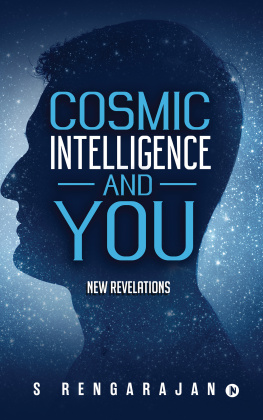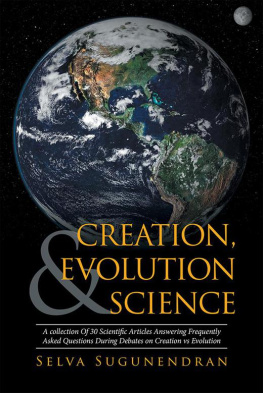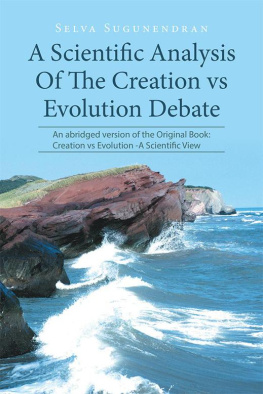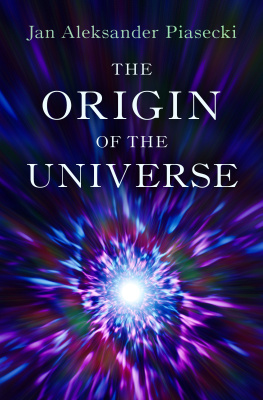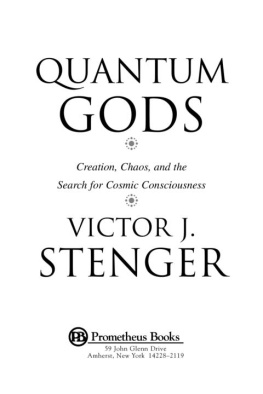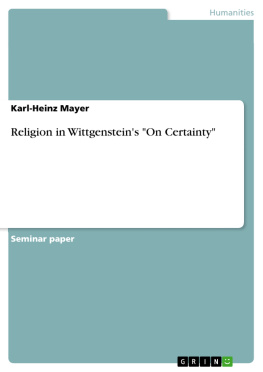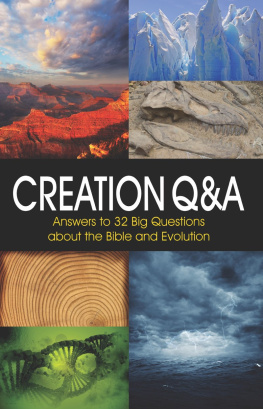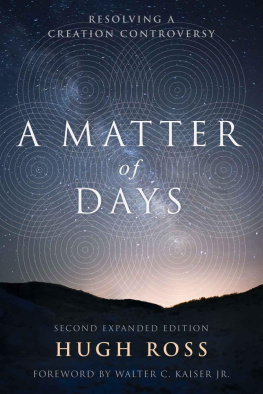S Rengarajan

Foreword
Every human being ardently yearns for happiness at all times. Age old wisdom of Hindu sages of yore loftily declares that bliss is the innate qualities of all beings, because they originate from one source, call it God principle or Nature or Supreme Reality. The pre historic treatises handed down to us in the form of Upanishads also proclaim that the blissful being residing in each one of us is the silent witness to the words, deeds and thoughts of the person. It is as if two birds are sitting inside us, with one being the active personality and the other the passive onlooker.
Sri. Rengarajan, the author, eloquently explains the principle, beginning with the Vedic axiom God desired, let me be many and savour the diversities. He further endorses the widely held belief in India that the big bang will necessarily and inexorably lead to a big crunch when the entire universe will shrink into one cubic centimetre of matter. In understanding the concept, an average person without a basic grounding of mysticism would be lost in their own ego. For, after all, the so called facts observed by them are viewed from the prism of their own minds, which had invariably acquired certain biases through the environment. The author quotes the famous thinker of twentieth century, Bertrand Russell who had berated the dogmas of even the great scientists. On the other hand, mystics who eschew all scientific enquiries might turn out to be egotistic. Therefore, in the opinion of the author only Scientific Mystics who are ethical, could integrate mysticism and science.
Upanishads, which are the distilled knowledge of Vedas have been extensively quoted in the book. In covering such an ocean of knowledge, the author had, like the sutras in ancient Indian literature, resorted to brevity in describing great concepts, which need to be understood by expanding their content. Many knowledgeable readers would doubtless have varied interpretations to the pearls of wisdom spread abundantly throughout the book.
The author finally mentions that, the evolution of universe going through the various stages of development and its ultimate withdrawal as a tiny concentrated mass, follows a pre determined plan and that we are, at present, in the last phase of the cycle. The Hindu mythology firmly asserts that the cycle consists of four Yugaseach spanning over many centuriesand that we are now in the last of the four, Kali Yuga. The author cheers up the reader, saying that one should not despair at the thought that we are nearer to the big crunch, as this represents a part of the cosmic cycle and the end of our universe would be followed by a big bounce. This would start a fresh cycle, and would be the exciting beginning of a new universe.
The book would prove very useful to scientists/thinkers the world over who do ponder over the issue of where we came from and where we are heading to. People exploring the human natures would find the book an invaluable guide in their intellectual pursuits. Universities should also prescribe the book as essential reading for students of philosophy and logic.
Chennai, | R. Viswanathan |
October 2016. | (Author of popular books)
Industrial finance &
Lord Murugan
Karthikeya Katha |

Notion Press
Old No. 38, New No. 6
McNichols Road, Chetpet
Chennai - 600 031
First Published by Notion Press 2016
Copyright S Rengarajan 2016
All Rights Reserved.
ISBN 978-1-946280-54-1
This book has been published with all efforts taken to make the material error-free after the consent of the author. However, the author and the publisher do not assume and hereby disclaim any liability to any party for any loss, damage, or disruption caused by errors or omissions, whether such errors or omissions result from negligence, accident, or any other cause.
No part of this book may be used, reproduced in any manner whatsoever without written permission from the author, except in the case of brief quotations embodied in critical articles and reviews.
Dedicated to the memory of my wife
Sugantha Rengarajan
Introduction
There are two different conceptions about nature of universe:
1. World as a holistic unity is dependent on humanity.
Spiritual view
When our universe is in harmony with the Supreme Being, we feel it as beauty. The Supreme Being is an eternal entity. It has no individual limitations. We have to realize this with own limitations through our emotions & activities.
2. World as a reality independent of human factor.
Scientific view
Science is not concerned with individuals; it is the impersonal human world of truths. Spirituality realizes this & links mysticism with our deeper needs. Our individual consciousness then gains universal significance.
Rabindranath Tagore
Science/rationalism enhance productivity by keeping delusions away & also by giving validations to true mystic beliefs etc. but it tends to apply coercion to the free thought process of the ethical mind which is a prime requisite for creation activities.
Mysticism/spiritualism, may lead us to bliss, but it can nurture delusions too. Only ethical mystics subject their mysticism to scientific scrutiny, in the social interest. So, beware of delusion .
What mysticism seems to do is to stimulate imagination/thoughts that form the basis for creation itself . But we know the imagination is capable of generating false as well as true information. Mysticism is ethically neutral. Ethica l mysticism dispassion passion devoid of feelings will make one a visionary who can guide a socially creative society, whereas unethical mysticism satvik ego playing god in self interest will make one socially more deceptive.
When personal mysticism or the belief in cosmic wisdom is combined with objective science, it enhances productivity.
Mystical Specialists i.e., mystics who are antiscientific and reject science as having any relevance to their mysticism are destructive and self deluded
Mystical Scientists are also destructive and self deluded in proportion to how much they compartmentalize their science and their mysticism, so that they do not apply the tests of science to their mystical insights and they do not rely on their mysticism to generate new ideas in science. In general Mystical Scientists are unscientific in their mysticism and unmystical in their science.
Scientific Mystics are creative in direct proportion to how ethically they integrate mysticism and science . Those who have made a full integration between science and mysticism are Scientific Mystics. They are fully scientific in their mysticism and fully mystical in their science. This is the Holistic Paradigm.
Scientific Specialists are scientists who have narrow outlook almost to the total exclusion of everything else other than their own specialty. They are usually minimally creative in their specialty, although they may do useful work in identifying delusion.
With this in backdrop we find satisfaction that the Vedic statement desire for self expression as many of the parabrahmamcosmic nucleusculminated into the oscillating universe, is getting the scientific validations from many of its recent findings. All the matters & beings that exist are thus truly the aberrations of the above nucleus.

